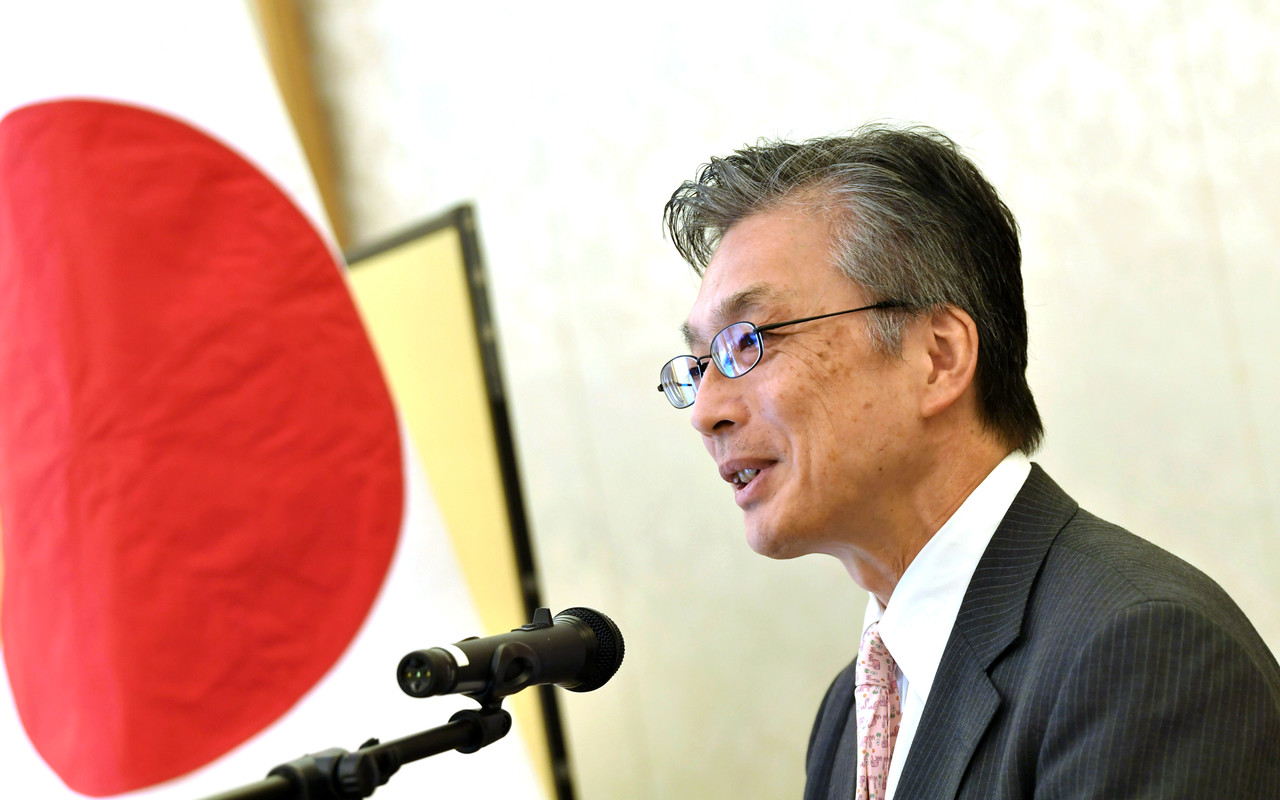By V.Sankara

KUALA LUMPUR, May 28 (NNN-BERNAMA) – ASEAN member states, particularly Malaysia, will be in good position to reap benefits from Japan’s economic stimulus package due to its close proximity to Japan economically and historically, besides having extensive Japanese business network, said Japan’s Ambassador to Malaysia Hiroshi Oka.
Oka said Malaysia – being a politically stable country, having people with good command of English, and high value-added supply chain to produce spare parts for aircraft and medical equipment – can make the country an ideal destination for Japanese companies to diversify their production bases.
“There is an urgent need to strengthen the resilience of the global supply chain in the wake of COVID-19 pandemic and make it less vulnerable to any re-emergence of deadly infectious diseases in (the) future.
“In order to strengthen the resilience of the global supply chain, it is important to have diversification in production or manufacturing bases.
“This means, instead of putting all the production facilities in one country, diversifying the production bases will make production processes less vulnerable (to disruption due to any future infectious diseases),” he said, adding that Japan’s subsidy programme doesn’t have any particular country in mind at the moment.
The ambassador disclosed this to Bernama when responding to media reports that Japan will launch a subsidy programme to encourage domestic manufacturers to transfer their production bases to ASEAN as the COVID-19 pandemic has greatly disrupted their supply chains heavily dependent on China.
International media has reported that Japan has earmarked 243.5 billion yen (US$2.34 billion) of its record economic stimulus package, compiled to try to offset the devastating effects of the pandemic, to help its manufacturers to diversify the production bases to strengthen their supply chain resilience, as the coronavirus disrupts supply chains between the major trading partners.
Commenting further, Oka said since the launch of Look East Policy in 1981 till now, some 17,000 Malaysians visited Japan to pursue higher studies and receive training and “this Japanese educated human network could be a boost for Malaysia to attract investments from Japan”.
He said in order to attract foreign investments, Malaysia should give tax incentives besides allowing movement of foreigners to facilitate business activities locally.
The envoy also said there are 1,400 Japanese companies in Malaysia, of which about half are in the manufacturing sector.
“Japan is the largest cumulative investor in manufacturing sectors in Malaysia and these Japanese manufacturers produce some 348,000 employment opportunities,” he said.
Noting that Malaysia is now on the recovery phase of COVID-19, Oka hoped that while it is important to continue to contain the virus, the Malaysian government will gradually allow the movement of foreigners who are required to run the factories or to recover the local economy which were affected as a result of the pandemic.
“The Government of Malaysia has laid out a 6-phase plan, called 6R, to achieve the medium and long-term goals, namely, Resolve, Resilience, Restart, Recovery, Revitalise and Reform.
“Now Malaysia is moving towards recovery phase of COVID-19 and I am looking forward to the announcement of specific plans to implement this 6R plan. Japan is eager to support it,” added the ambassador.
— NNN-BERNAMA






